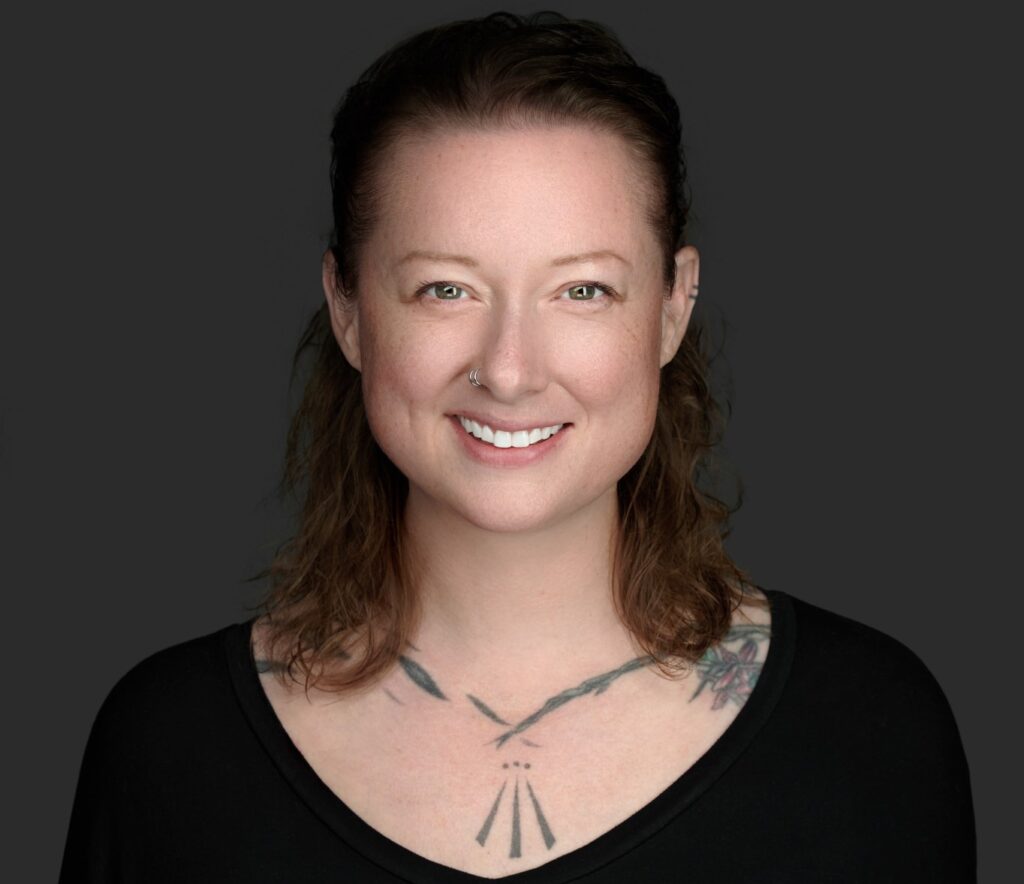Most of the time, I make my radio show from the comfort of my sweet, peaceful home. The environment is controlled: The same smells, the same scenery, the same mic. And as unpredictable as the interview may be, well, it’s still pretty predictable.
After all, my production team has totally prepared me for every conversation. By the time I press record on Zoom, they’ve spent hours going down rabbit holes of research. They’ve filled a Google doc with questions, and arranged them into a flow: Where do we start? What should be the final question? How can we best help them tell their story?
After they’ve done all that, I review the doc. Add my questions. Maybe rearrange or expand on some of theirs. Sometimes they’ll write a big note on a link: IF NOTHING ELSE, READ THIS. I am obedient and appreciative.
So when it came time for us to commit to doing our first live show–with an audience and everything!–I wanted to feel what it felt like to throw all of that out the window.
Faith Middleton was a Connecticut Public Radio superstar for more than thirty years. She had intelligent, heartfelt, fascinating conversations with some of the world’s biggest thinkers.
But now and then, with her wholehearted consent, she would agree to go into a show completely blind: Only her producers would know the identity of who she was interviewing.
And she would do it live!
When I first heard Faith do this, it lit me up! Not only did it feel like a daring thing to do, but it felt like she must have a lot of confidence to do it. What must it be like to be so great at your job that when the ON-AIR light comes on, and you have no notes, no research, no questions in your lap… You totally rise to the occasion?
Back to formulating our first live show. Would we hold it in a university auditorium? Or maybe at a library? Would it be a panel, or would I focus on just one interesting person? How do we want the audience to feel when they’re with us? And when they go home?
I was watering one of my 100 houseplants when the concept hit me:
Show and tell.
At a brewery.
At first, I thought about calling it “Adult Show & Tell”. But that was suggestive of something that it wasn’t (although I’m down for that, too!).
But the idea solidified: Invite people to bring an object they could “tell” about. They could put their name in a hat for the opportunity to join me on-stage. No one–not me, not my production team–would know who they were or what they brought.
And since we had no idea how many people would volunteer, we decided to ask Connecticut Public staff to also bring something. And, of course, they were not allowed to tell me what their thing was.
When the event began, I felt the same tingling sensation that I suspect Faith Middleton felt when the ON-AIR light went on!
Over the course of two hours, we heard stories from twenty people.
Elaine Braithwaite told the story of her (very sexy) electric violin; Faisal Salah put on white gloves to handle his fathers Palestinian passport. And did you know that Lucy Nalpathanchil’s dog is on the cover of a Weezer album? Now you do.
And did you know that some people collect their pets’ whiskers? Cjet Raymond brought in a jar of cat whiskers from her clutter of cats (and inspired me to start my own!).
And Kristen Cusato from the Alzheimer’s Association of Connecticut technically brought nothing, put it in my hand, and closed my fingers around it, lovingly… She told the story of how her mother was affected by the disease, and how she did that gesture at the end of her life. It meant so much.
So how did it feel for me to spend nearly two hours not knowing what people were going to talk about?
Freaking exhilarating!
Now, unlike Faith Middleton, I wasnt live on the air, heard by hundreds of thousands of people at once. There were about 70 people in the room. But the thrill of being utterly wide open, letting curiosity lead, was electrifying. And gratifying.
We can do all the research in the world on someone, but they always come into the interview knowing way more than me. And that sort of exploratory, wide-open state – vulnerable and eager – is a place I could live in forever.
The episode is here.








More Stories
Chion: Finding the Inner Child
Chion: Talking with Jada Star
Chion: Enter the Dragon